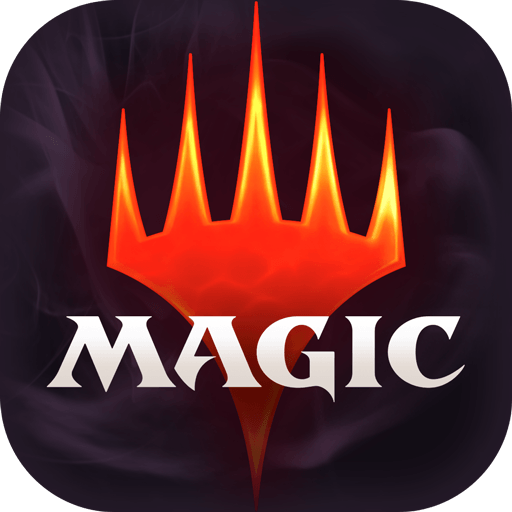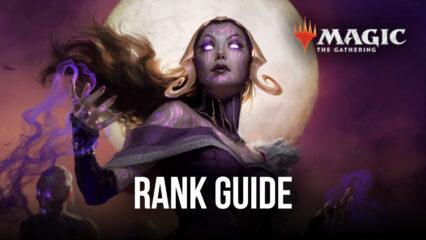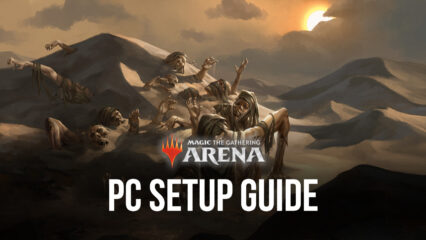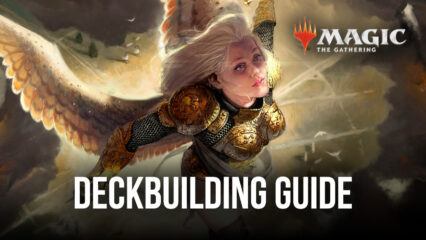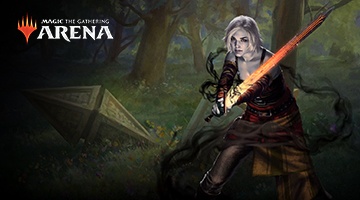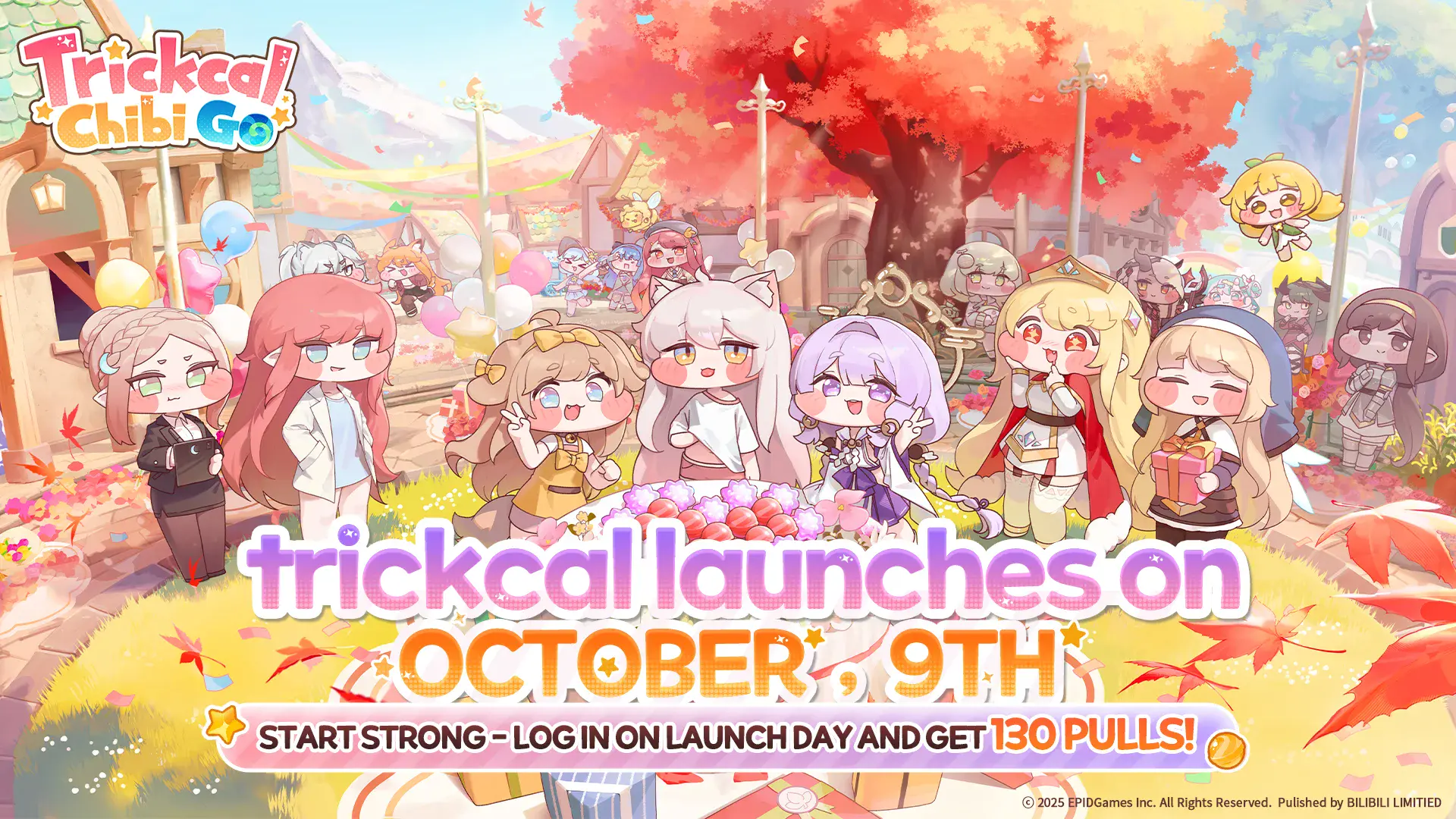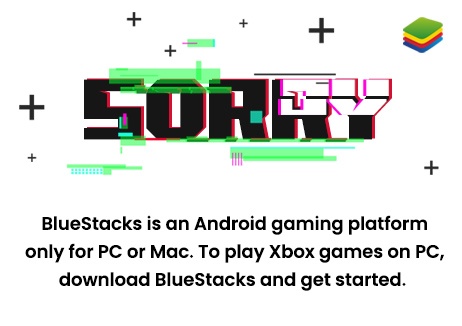BlueStacks' Beginners Guide to Playing Magic: The Gathering Arena
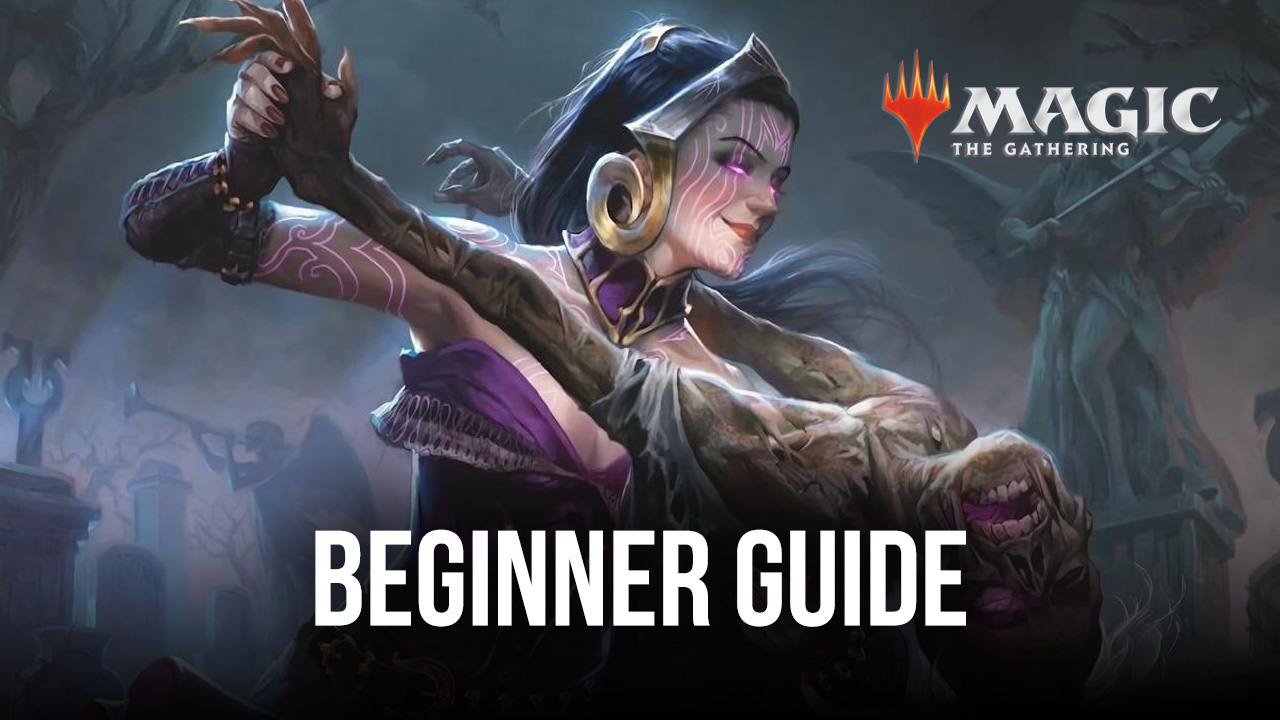
Have you begun to play Magic: The Gathering Arena on BlueStacks? Wait a minute! We’ve still got some tips that you might want to read up on before committing your time and resources to play the game head-on! Card games have one of the most complicated mechanics and for a title that’s been around for decades, this game will test your ability not only to play your cards, but also to manage your resources in a way that allows you to maximize your card pool that will help improve chances to win.
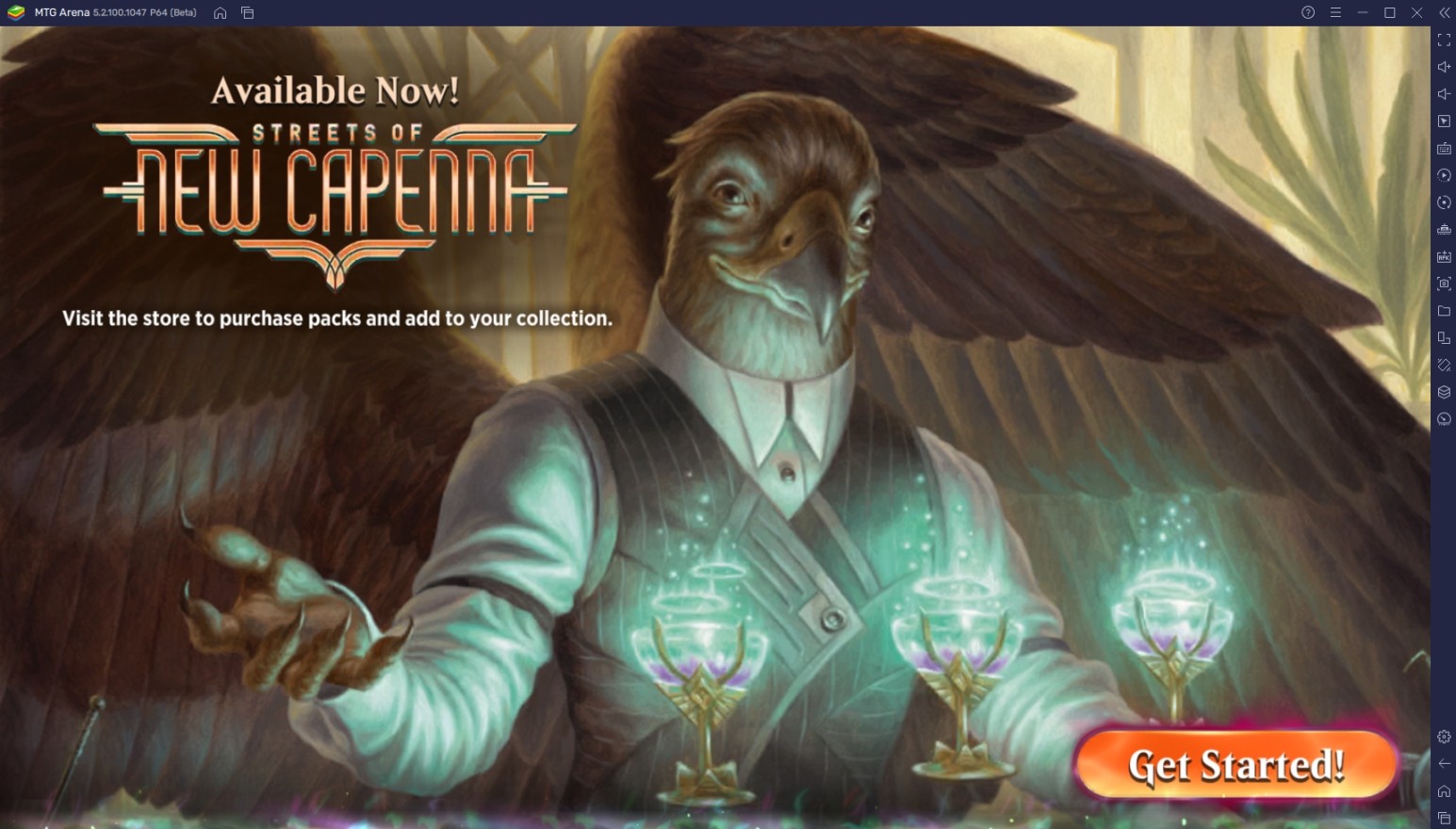
Make sure to install Magic: The Gathering Arena on BlueStacks today to maximize benefits that you wouldn’t otherwise experience on other platforms. Learning how to play the game isn’t simple and takes hundreds of games to really master even just one deck in general. If you’ve never played a TCG or CCG before, you might have a difficult time adjusting to the game’s mechanics. That’s why we’ve made this beginners’ guide to help players understand how to start grinding like a pro!
Building a Deck
Building a deck is the first step in any card game. In Magic: The Gathering Arena, there are countless decks that you can build and a varied number of top decks that you can choose from if you’re planning to be competitive. The hardest part about playing this deck is building your first deck because beginners don’t have the necessary resources to start creating a competitive deck unless they are willing to spend real money to purchase booster packs and start collecting wildcards. Don’t worry though because even a F2P user can eventually build a competitive deck.
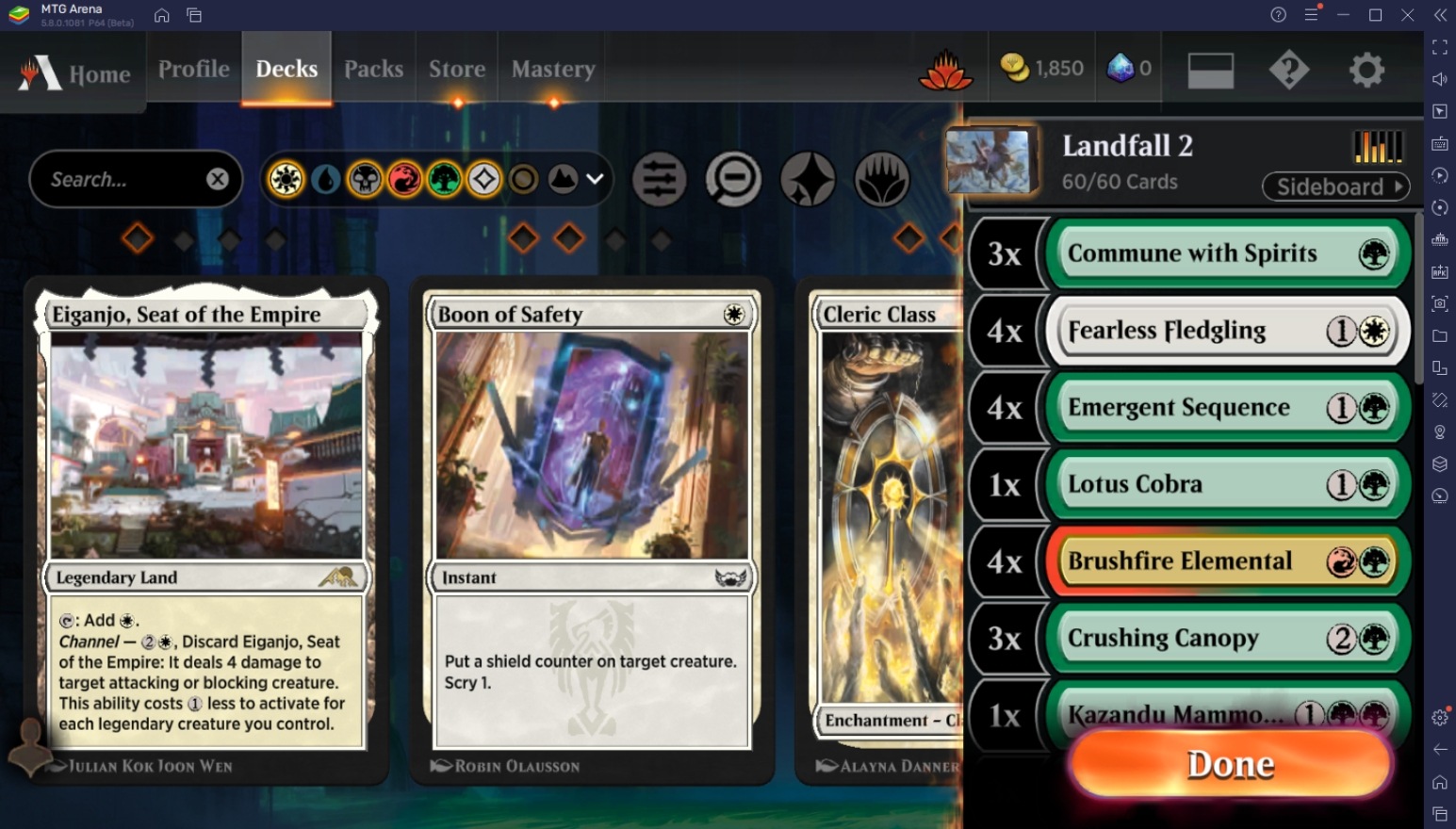
Deckbuilding is a process that we need to discuss more in a future article in-depth so that you can understand how you can spend your limited resources into making the right decisions that you won’t end up regretting. For now, we recommend that beginners go on MTG resources online to browse which decks are performing well in the current metagame. However, if you’re the type of player who wants to build their own deck, you can do that as well by studying the fundamentals of the game.
Getting Cards
Before you can build a deck, you need to get the cards that you’ll need. However, that can prove to be an extremely difficult task if you’re not familiar with the different ways you can acquire them. In the physical version of the game, you can simply buy the cards that you want or get them in booster packs. The same can also be said in MTGA, but buying cards isn’t really as straightforward as using your money to get specific pieces that you need to build a deck.
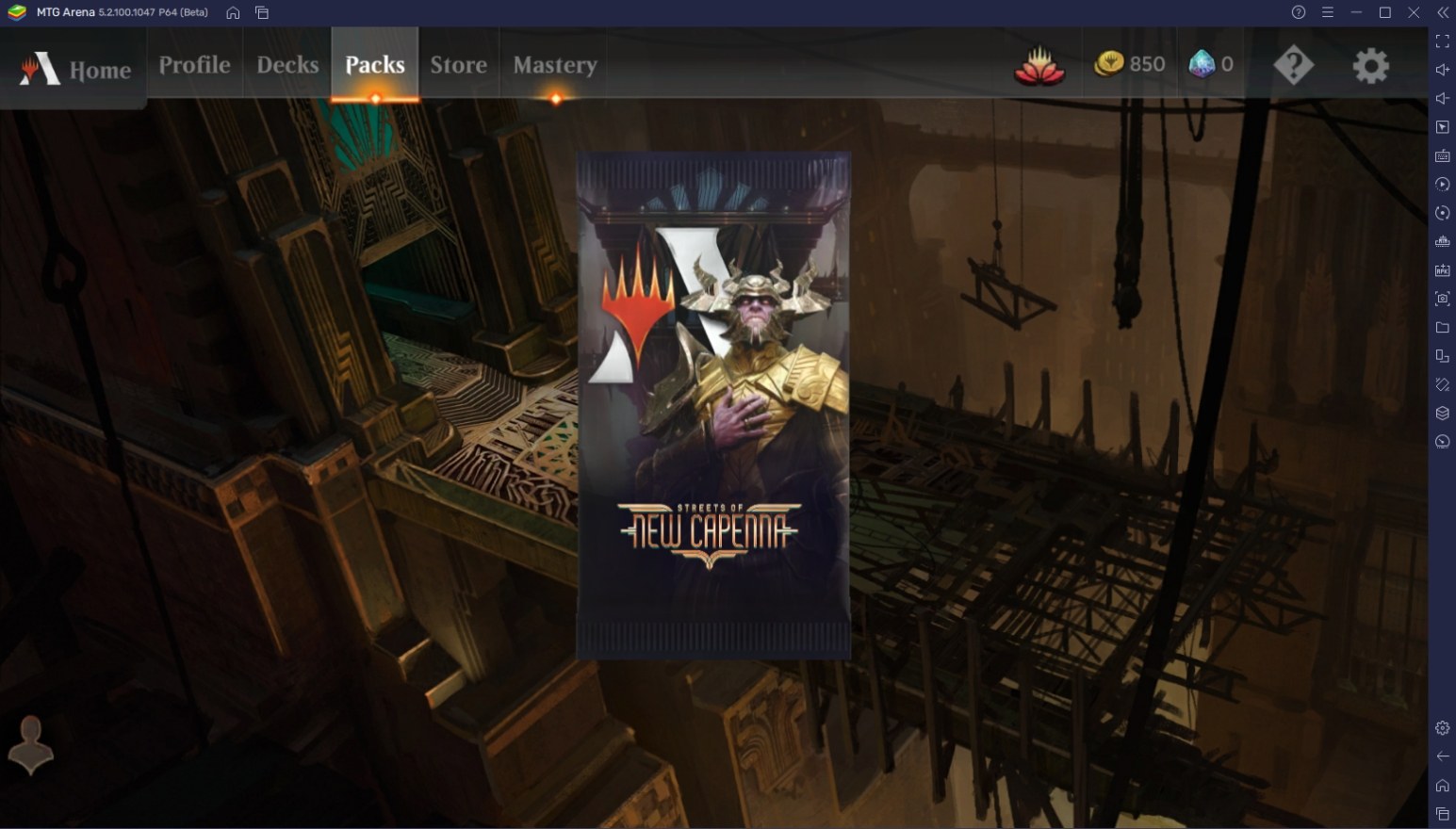
Magic: The Gathering Arena introduces various ways to acquire cards. The first method is by opening boosters, which offer random chances to get a specific set of cards depending on the expansion. It’s important that you study each expansion to know if that booster pack contains the cards you need. You can also craft cards using wildcards, which is like a ticket that you can use to get a card of a specific rarity. You can also get cards randomly as rewards or by completing tasks in the game.
The Card Types
There are different kinds of cards in MTG Arena, but the general types are the spells and lands. Lands are cards used as a resource in MTG. Spells are any card that you can cast which contains a mana cost to summon. Mana is generated by lands, which are used to activate your spells. The mana cost of a card helps regulate the pace of the game, allowing only a limited number of cards to be played each turn and the more powerful cards being played only after a few turns have passed.
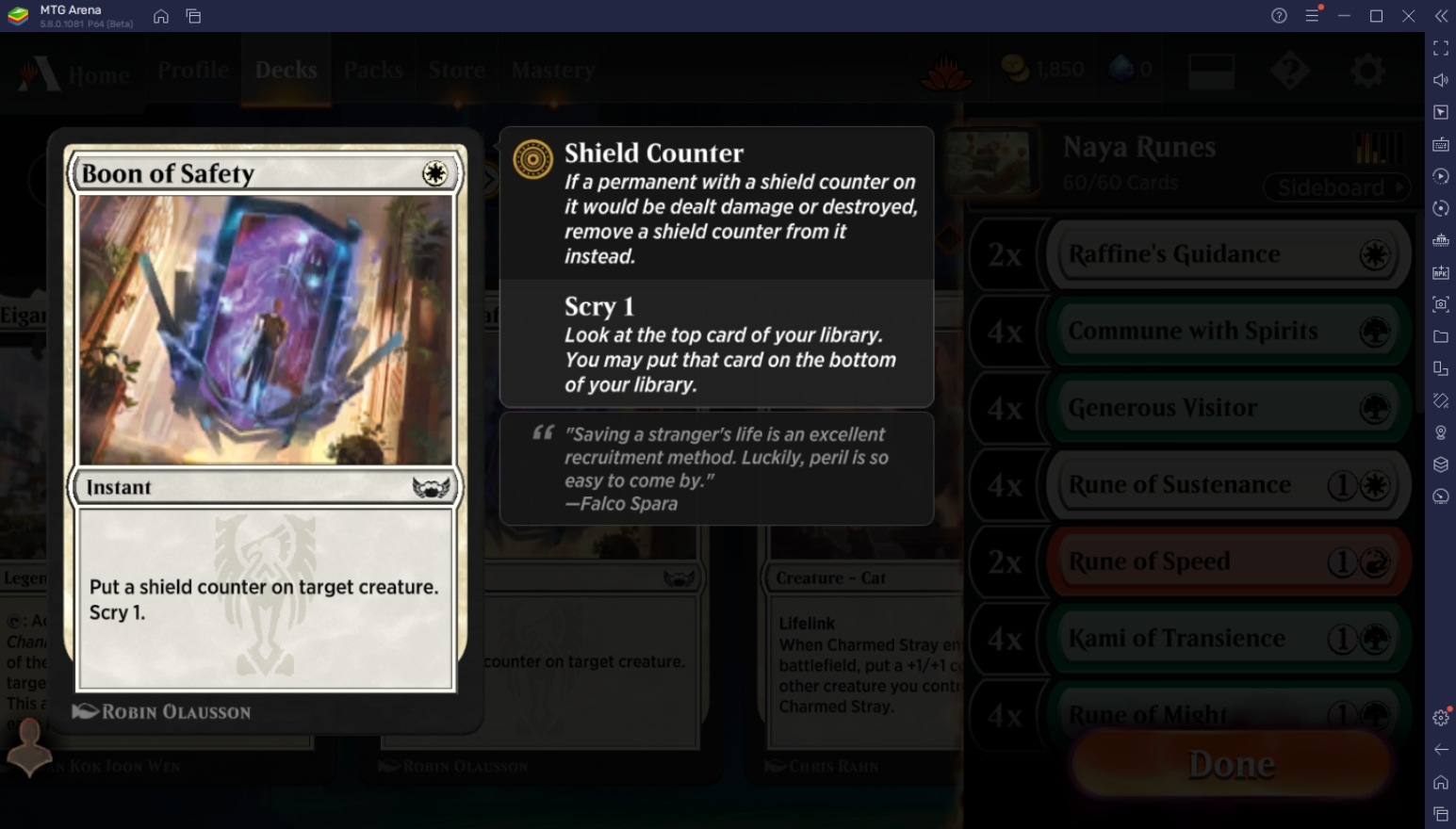
There are two types of lands which are basic lands and special lands. On the other hand, there are multiple types of spells ranging from creature spells, planeswalkers, instants, sorceries, enchantments, and artifacts. Understanding how each of these spell types works will allow you to understand the fundamentals of deckbuilding, giving you a general idea on how the flow of the game works when playing against opponents. The tutorial covers how they work so you don’t really have to worry too much about studying them.
Formats
Formats are an important part of TCGs. In MTG Arena, they use only some of the official formats from the physical version which are the standard, historic, alchemy, and explorer formats. If you’re interested in playing the main competitive scene in MTG Arena, the standard is the only format that you’re interested in because it’s harder to jump into the other formats as a beginner because it requires a wider card pool that’s simply too difficult for new players to attain.
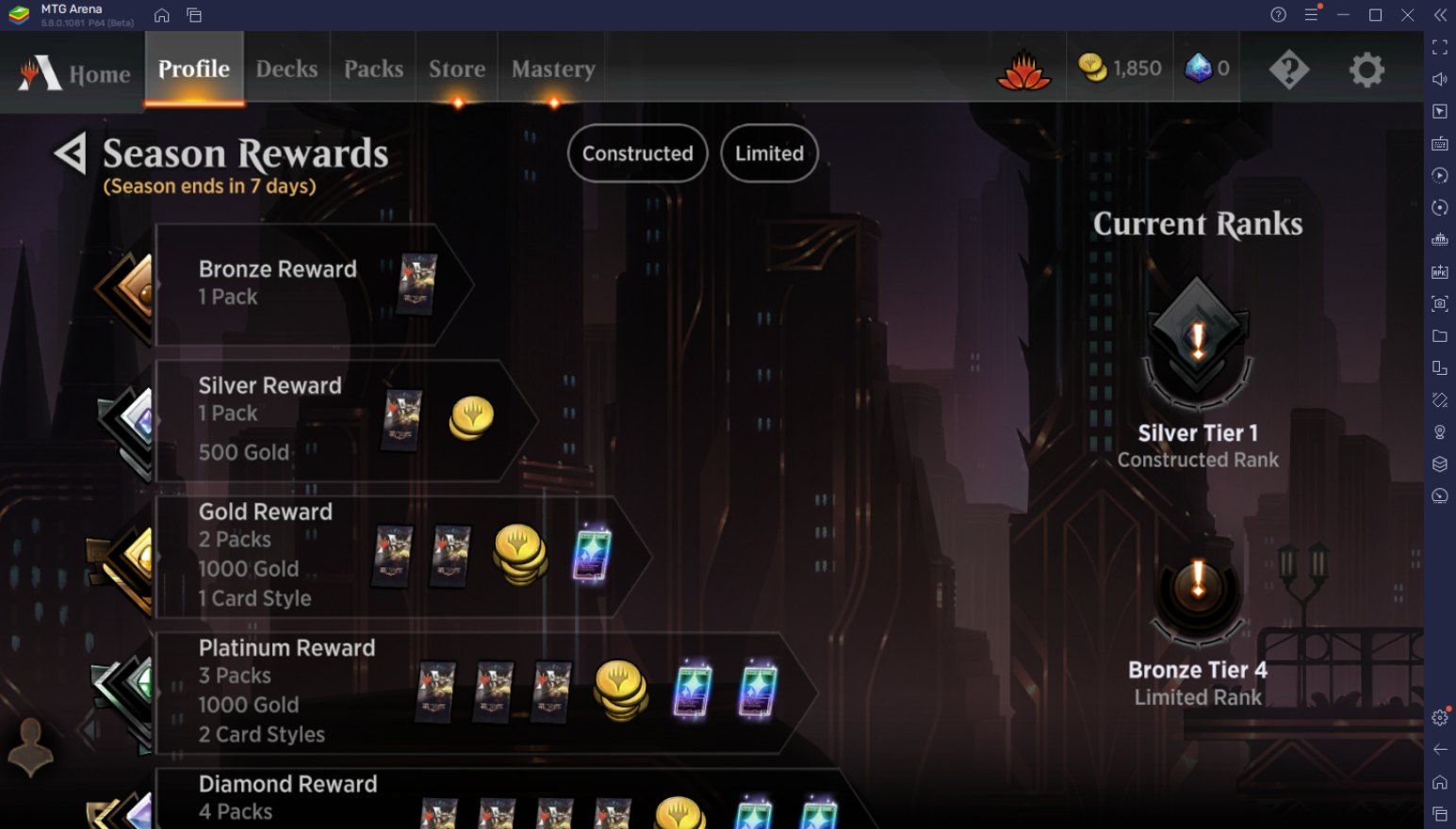
In the standard format, players will only be able to use booster sets from a certain number of recent expansions. Every year, cards from certain expansions become illegal for play unless they are reprinted in a current set. This is to ensure that the game continues to evolve, preventing one archetype from dominating the metagame and encouraging players to continuously build new decks. It’s important that you’re aware when the rotation happens and which sets are being removed so that you don’t end up spending resources on a card that is about to become unusable.
Normal vs Ranked Games
There are many game modes in Magic: The Gathering Arena to cater to all types of players. Aside from bot matches, there are also event-exclusive game modes that appear whenever a new set is released, but the two main game modes that you’ll most likely be playing are normal and ranked games. In normal games, players will be able to play against real players who also have self-constructed decks or are using the free beginner decks.
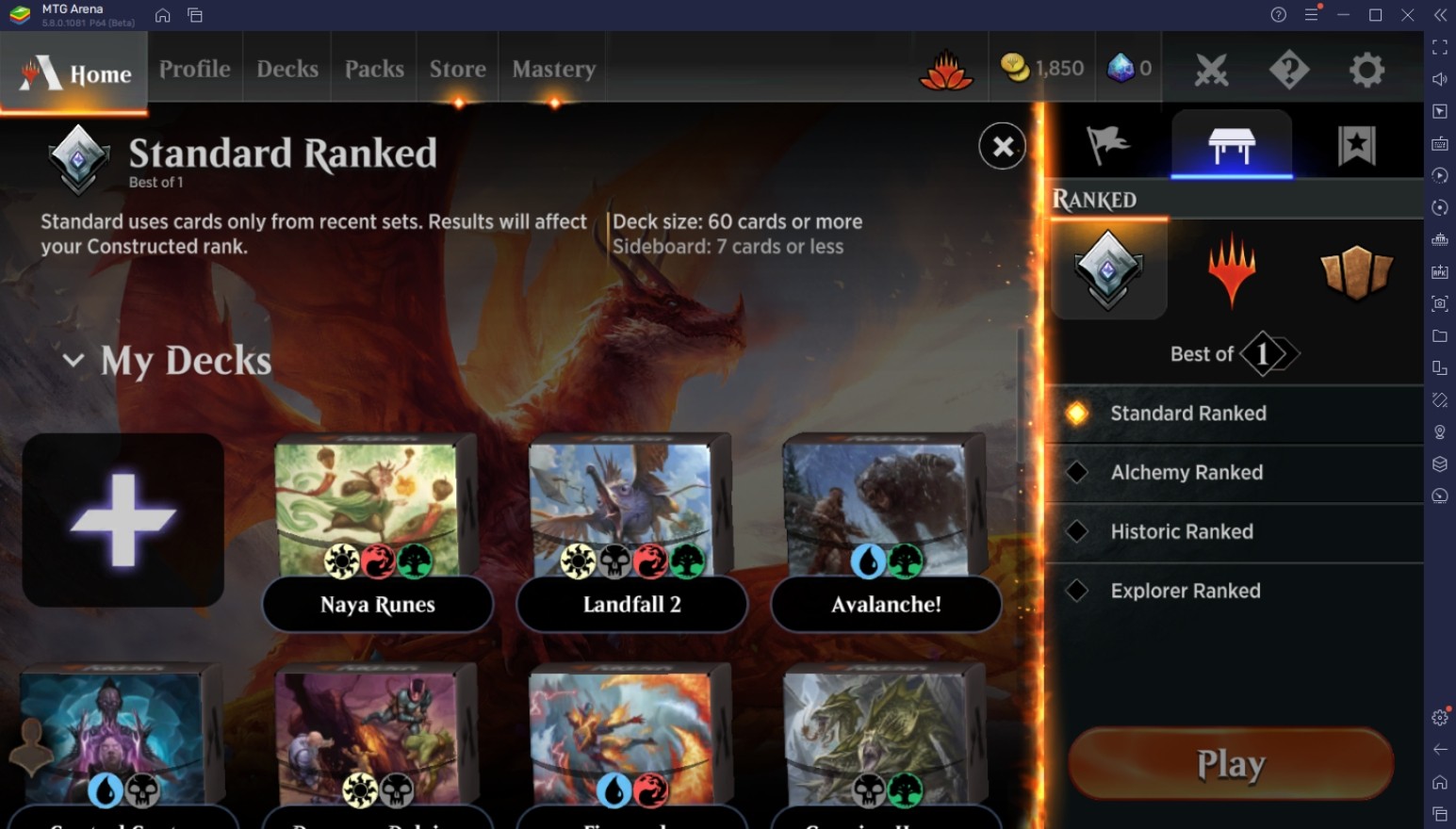
Ranked games are the highlight of MTG Arena. Players will be playing against other players who will often have fully constructed decks that are featured in the metagame. This isn’t usually a place to have fun and chill out, since the ranked system promotes players who do well by assigning them ranks that increase whenever they win consistently on the ladder. The ultimate goal for most players is to reach the top spot and eventually compete in serious competitions.

